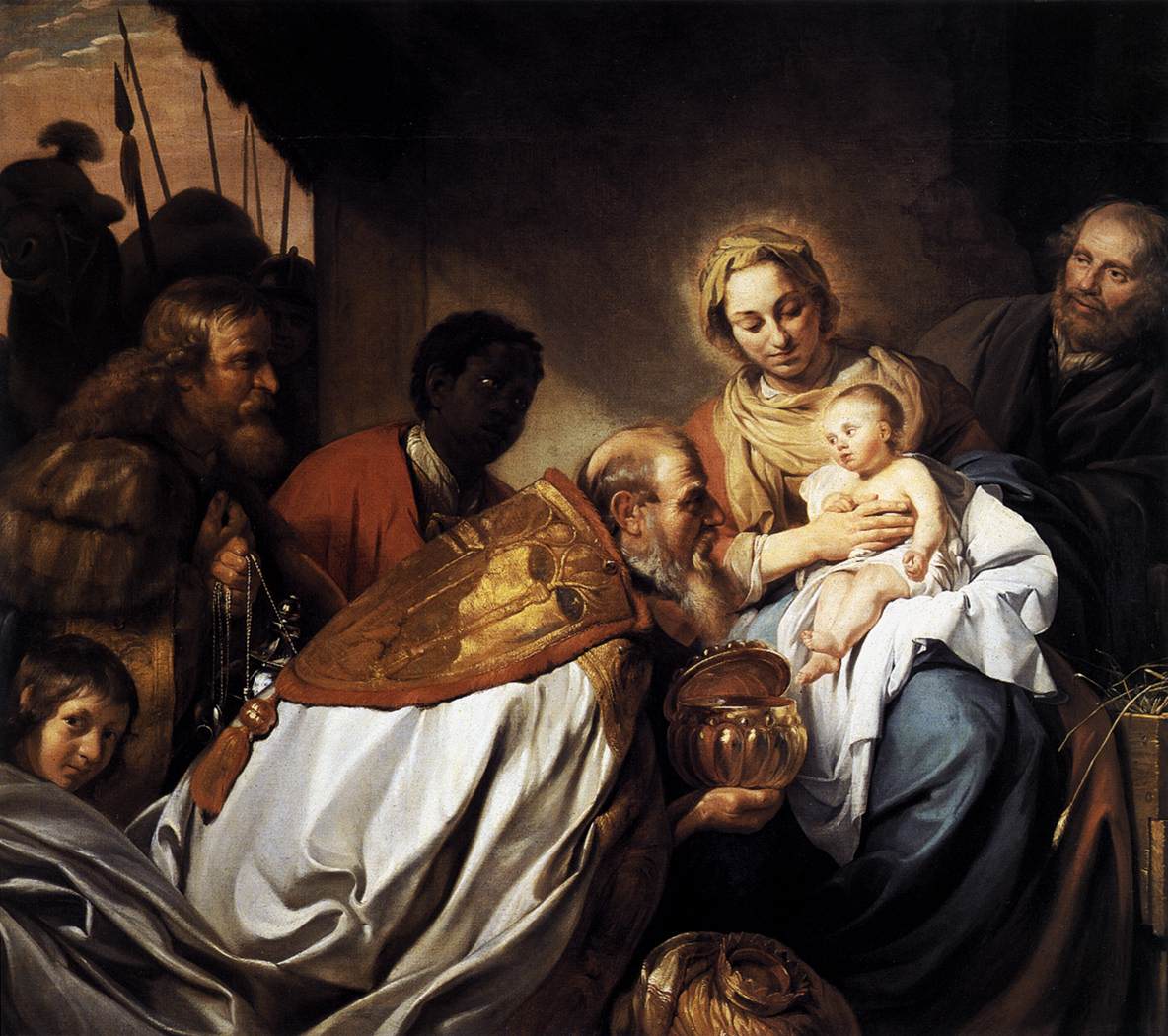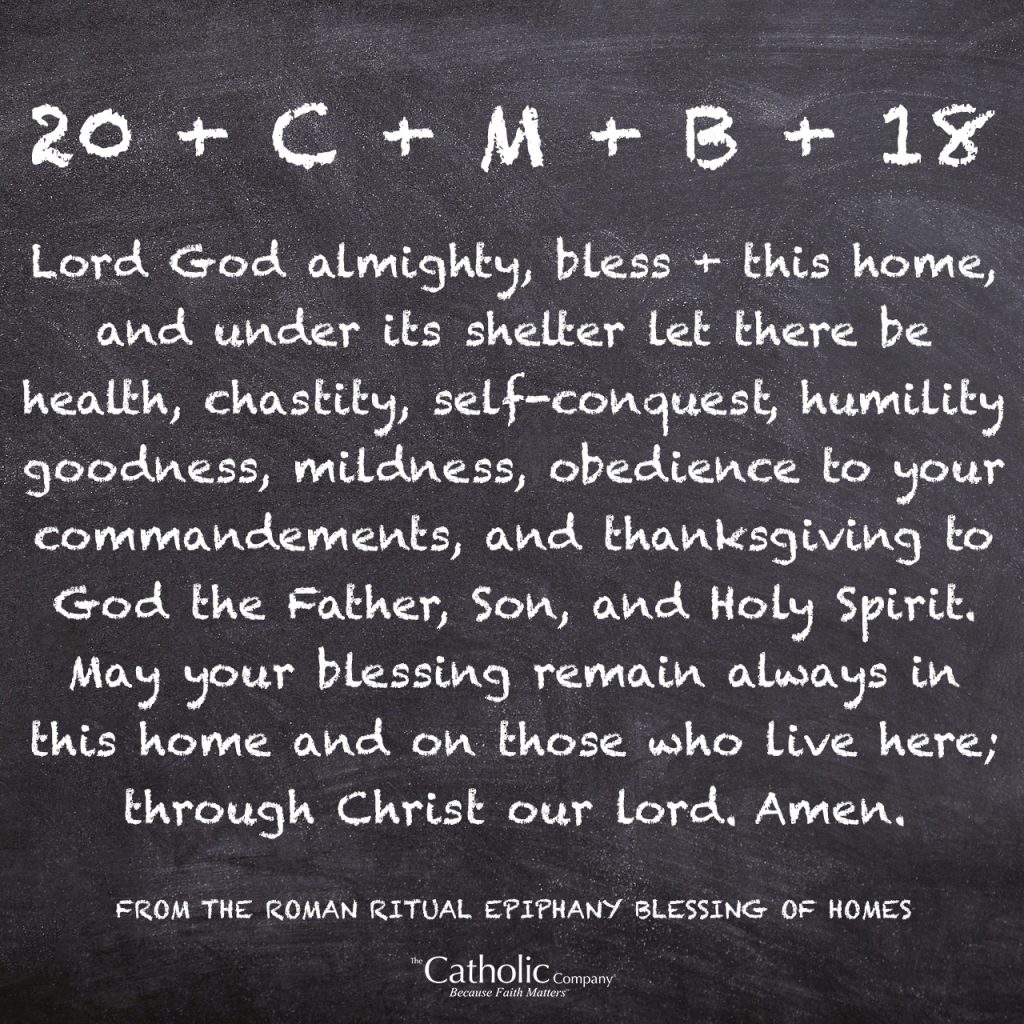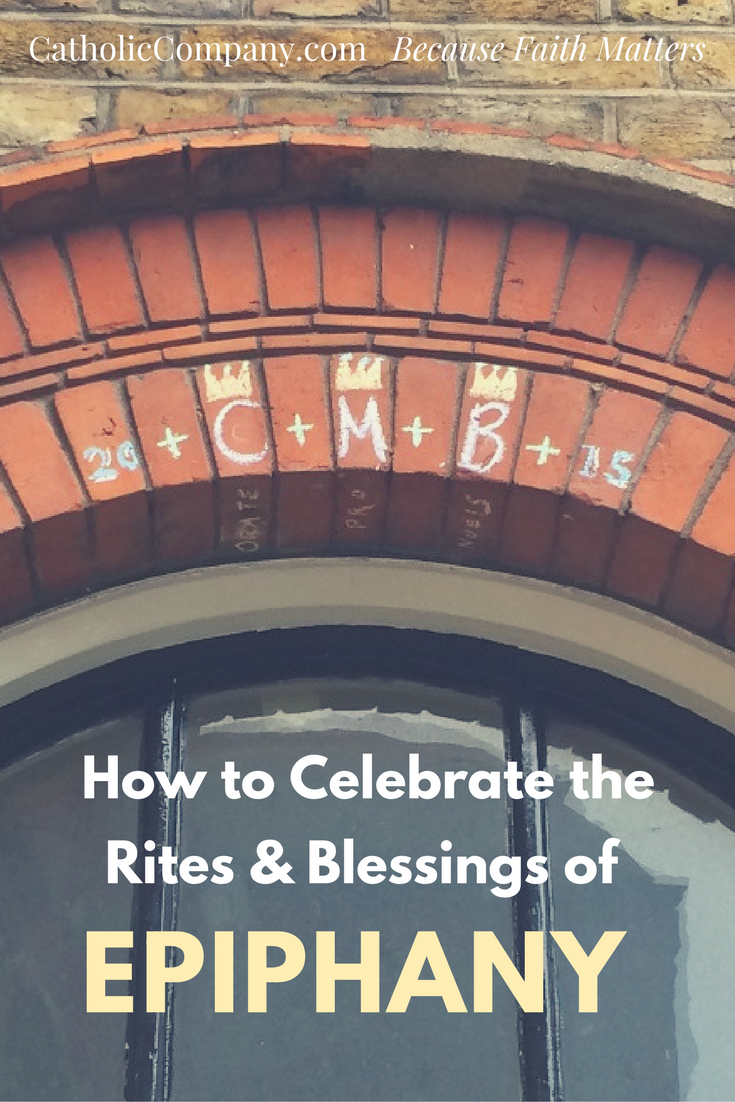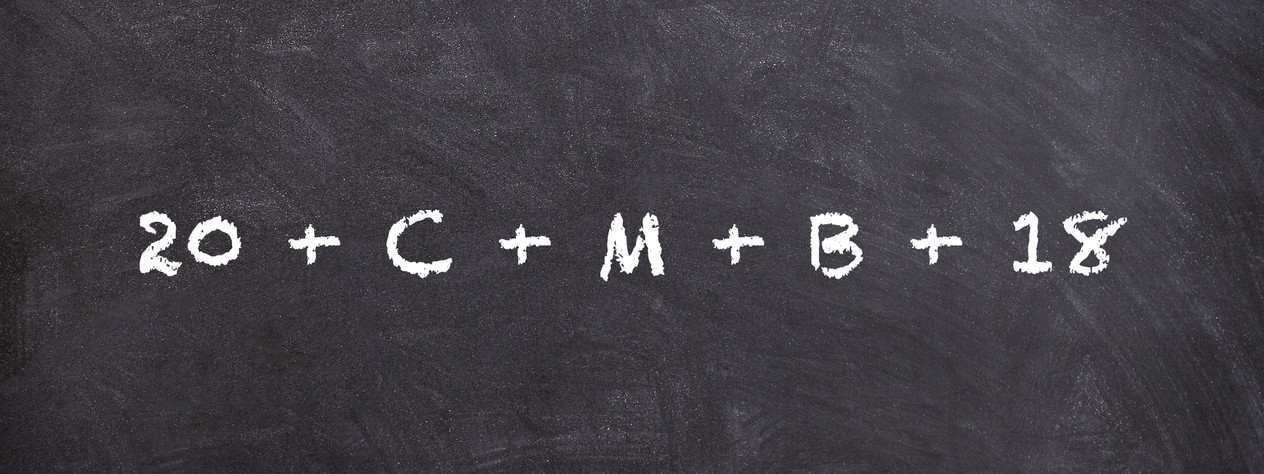How to Celebrate the Rites & Blessings of Epiphany
Jan 03, 2018 by Gretchen Filz
Epiphany is one of the Church's major and spectacular feasts. It occurs on January 6th, the final day of the 12 days of Christmas (in some locations it is transferred to the Sunday between January 2 - 8). In some places it is also called Twelfthnight or Three Kings Day. This is the day the Church commemorates the Magi arriving to give homage to the newborn King of Kings with their gifts of gold, frankincense, and myrrh, symbolic of all the Gentile nations coming into the Kingdom of God. In many places around the world, this was the traditional day of gift-giving in celebration of Christmas.
See also The Three Kings and the Original Gifts of Christmas Tradition

In the East this feast is quite a bit more elaborate than in the West. For the Eastern Church, Epiphany is the celebration of not one, not two, but three 'epiphanies', or revelations of Christ: the arrival of the Magi with their kingly gifts, the Baptism of Jesus in the Jordan River, and Jesus' first miracle at the wedding feast of Cana. These three biblical events are theophanies, or visible manifestations of who Jesus really was—God incarnate. In some locations a fourth event was also historically celebrated on this day, the Nativity of Christ.
See also Does Christmas End on Epiphany?
There are many beautiful and ancient traditions that come to us from the East in the form of special blessings that the Church performs on this feast: the blessing of water, salt, chalk, and homes, as well as of gold, frankincense, and myrrh.
SPECIAL EPIPHANY BLESSINGS
Click here to view the special Epiphany blessings from the Roman Ritual described below.
- EPIPHANY WATER: There is a special blessing for water on the feast of the Epiphany because of its connection to the celebration of Jesus' baptism. This ancient rite of the blessing of the waters, with its extraordinarily powerful prayers of exorcism, renders Epiphany Water more spiritually potent than 'ordinary' holy water (also, exorcised salt is part of the ritual and is used to 'make' Epiphany water).
- BLESSED CHALK: There is a long-standing Epiphany tradition of marking churches, homes, schools, and other buildings with a special 'holy formula' over the entryway using chalk that has been blessed for this purpose on Epiphany. This formula includes the current year along with the initials C, M, and B in the order shown below.
20 + C + M + B + 18
The C, M, and B are placed in between the numbers of the current year, with crosses in between each symbol. The three letters have two significations: the invocation Christus Mansionem Benedicat (Christ bless this house), as well as the first initial of the names of the three Magi: Caspar, Melchior, and Balthazar.
- BLESSING OF HOMES: Epiphany, including its octave, is the traditional time of year to have your home blessed by a priest. If it isn't possible to have a priest bless your home, the head of the family household (i.e. the husband/father) can preside over the ceremony as in the above link to the Roman Ritual. After the ritual, mark 20 + C + M + B + 18 over the entryway of the home with chalk.
- BLESSING OF GOLD, FRANKINCENSE, & MYRRH: There is also a special Epiphany blessing in honor of the original Christmas gifts. The faithful can have their items of gold blessed (such as wedding rings and rosaries), myrrh for medicinal use, and frankincense to be used for the Epiphany home blessing and other liturgical feasts (such as Easter).

HONORING CHRIST THE KING
Coinciding with the freshness of a new calendar year, and with the symbolism of the Gentile nations being received into God's Kingdom, Epiphany is the perfect time to honor Christ's dominion over your life, and all that belongs to you, with these ancient, external signs of the Christian faith.

© The Catholic Company. All rights reserved.





